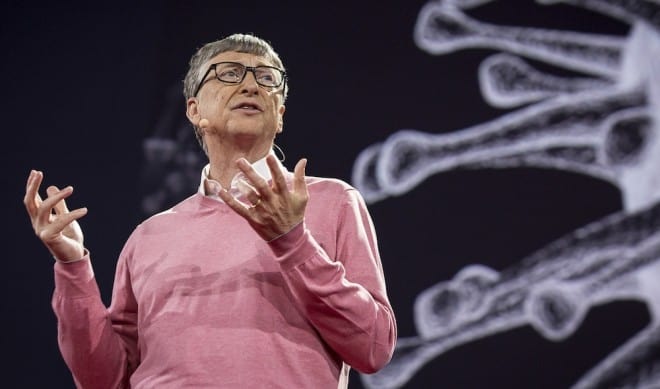
A volunteer gets sprayed a bleach mixture while training for a mission to support the German Red Cross in Liberia, Oct. 23, 2014.  Markus Schreiber/AP
Markus Schreiber/AP

Bill Gates speaks at TED 2015 in Vancouver. (Image courtesy TED on Flickr (CC).)
We’ve just passed a difficult and little-noticed anniversary: Last week, the Ebola epidemic in West Africa achieved its first birthday. Though the viral outbreak has been contained, it is still not under control: According to the World Health Organization, cases continue in Sierra Leone and are rising again in Guinea. Liberia was about to record an entire incubation period without a new case — a signal that the chain of person-to-person transmission might have been broken — but on Friday, it announced that it had found a single new case. How that woman became infected is unclear; it is possible that she represents, not a new outbreak, but a brief interruption in an otherwise promising trend.
It has been decades since there was an epidemic of this persistence and magnitude. No other Ebola outbreak matches it; nor does the 2003 epidemic of SARS. You would have to go back to the early days of HIV in the 1980s, or to the flu pandemics in 1968, 1957 or even 1918, to find an outbreak that sickened so many people, challenged international response capacity so much, and instilled such fear in other countries.
The anniversary has triggered reflections. Some criticize the response to Ebola for being inadequate and slow. Others — such as two talks at last week’s TED conference, one by Bill Gates — extract lessons that should inform responses to future epidemics.
Because there will be future epidemics. That’s for sure.
